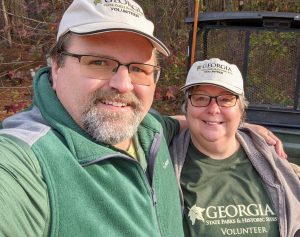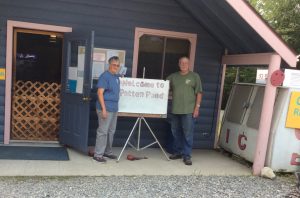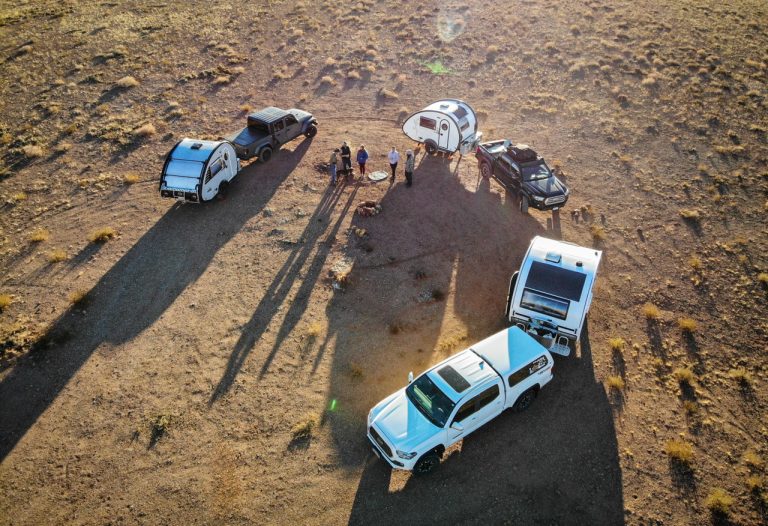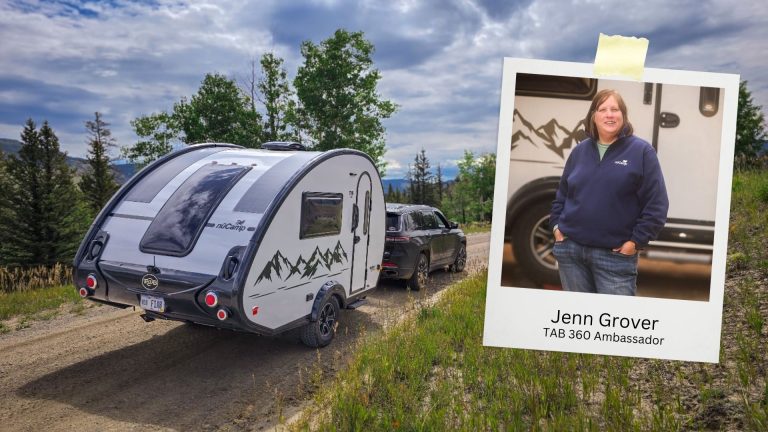Workamping sounds like the best of both worlds: earn some money while enjoying new experiences, visiting new places, and making new friends. But if you don’t do some research ahead of time, you may find that your idea of workamping doesn’t match the reality.
We reached out to two experienced workamper couples for their advice on how to have a successful workamping experience. Andrew Richardson and his wife Karen Mason have been full-timers for five years, and workampers since the summer of 2017. The couple typically works for one to five months before taking time off to sightsee and enjoy the tourist life.
Mary Davidson and her husband Roland began their full-time RV life in the fall of 2014 and have been workamping since 2016. At the time, Mary was a traveling healthcare professional with assignments lasting from three to six months. With plans to spend time in Alaska during the summer of 2016, the couple took a position as Alaska State Park hosts. This led to another workamping job in the state in 2017.
The Davidsons worked outside of Denali National Park at Denali RV Park and Motel. Roland worked the office/store while Mary did laundry for the motel and inspected rooms for cleanliness.
Both couples are enjoying the full-timer/workamper lifestyle and in this post, they share their top tips for making it a successful and positive experience.
Do your homework.
Workamping — coined by Workamper News in the ’80s — is when someone works while living out of an RV. This can be doing remote work while on the road or doing part-time or temporary full-time positions while living on your home on wheels.
For the Davidsons and the Richardson-Mason family, this meant working at campgrounds and RV parks after retiring from their regular 9-5 jobs.

When Andrew and his wife started full-timing, they read a number of articles online to gain some understanding about workamping. “This helped calibrate expectations going into our first gig. Without doing research, I can imagine newbies may be overwhelmed and/or disappointed with how the process works,” he said. “For example, many comments online deal with how the pay is too low. They need to understand workamping was never set up to be a primary income source; it was a way for retirees to stay active while visiting interesting locations.”
Now when he looks for opportunities, he typically does a Google search of the employer to see if there are reviews posted online. “If I can find another workamper contact, I will reach out to see what their experience was in case they did not post the ‘whole truth’ in an online forum,” Andrew said. “Then I look at what is in the area for services such as groceries, dining, and entertainment venues.”
Andrew said he and his wife have had some good experiences, including the river outfitter/campground office position that they most enjoyed. “We had great owners and mostly a fun group of coworkers. We plan to return this upcoming summer, our fourth season.”
Before accepting a position, the Davidsons check out the website, then looks for reviews from campers and asks for input on Facebook groups. But even with that research, Mary warned that you could be in for an unpleasant surprise, citing one of her experiences.
“We were let go after three weeks at a private RV park when we tried to discuss some issues with the managers. We were not doing the jobs we had been hired for,” she said, adding “This happened to two other couples and the managers were not rehired for the next season.”
Check workamping sites for positions.
When it comes to finding workamping positions, the Internet is a good starting point. Mary relies on HappyVagabonds.com, WorkersonWheels.com, and Facebook groups as well as state websites. Andrew looks at job postings on WorkamperNews.com and Coolworks.com to identify opportunities along with volunteer position postings on state park websites. “Sometimes other RVers will offer networking tips as well,” he said.
Decide what most matters to you.
Andrew said they first see if the geographic area is interesting, given they will be there for some time. Next comes considering the job duties and the number of hours. The couple prefers a part-time commitment. “For example, a basic janitorial at a campground is fine, but we are not interested in cleaning cabins,” Andrew explained. “We can be office workers, store clerks, and/or grounds crew, but aren’t keen to be direct sales —e.g. Christmas trees.”
Lastly, said Andrew, they consider the compensation and perks. Full hook-ups are a must, but anything extra is a bonus. The couple has an ample retirement to lean on and has done everything from volunteer-only gigs to all-hours-paid gigs.
Andrew and his wife have volunteered as state park campground hosts, handling jobs from janitorial and site maintenance to guest services, river outfitter shuttle driver, and waterfront director. The couple has also done a variety of site-plus-pay jobs: campground office staff, technical services (internet and cable system admin), restaurant work, and event center support.

Mary retired from her medical career in April 2020, and now she and her husband workamp full-time. When they are looking for new positions, Mary said it’s all about location, location, location. She and her husband have accepted workamping jobs at state parks in Alaska, Texas, and Minnesota, at private RV parks, at a winery/event center, and even at a farm, handling everything from office and maintenance jobs to food preparation and event set-up.
Final tips
Andrew advised to always get the workamping agreement in writing before traveling to the job site. He recommends documenting all aspects of the job, including duties, responsibilities, prerequisites (e.g. CDL class), compensation, perks, start/end dates. While it’s not contractually binding, it helps ensure everyone is on the same page, he said.
“We have made good friends at most of our gigs which is like icing on the cake,” said Mary, adding, “Coworkers and supervisors can make all the difference in the experience. Also, keep an open mind because every park is different.”
For more information about workamping, check out our posts Mixing Business and Pleasure—Making Money While on the Road and Tips for Making Workamping Work for You.
More blogs
- Mixing Business and Pleasure — Making Money While on the Road
- Mobile Office Must-Haves for Your Camper
- Tips for Making Workamping Work for You
Recent Articles





